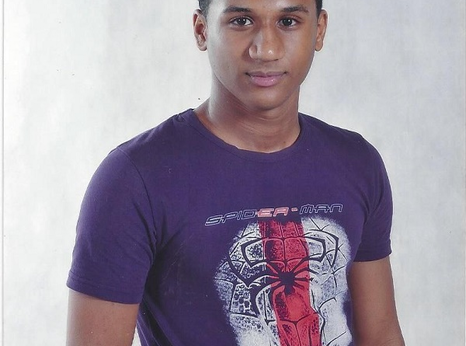Saudi Arabia: Halt the imminent execution of young Saudi

On 28 March 2018, Mustafa al-Darwish was sentenced to death over charges including “participation in armed rebellion against the rulers, blocking roads and sowing discord”, “forming… an armed terrorist network and firing at security officials”, “seeking to disrupt national cohesion through his participation in more than 10 riots”, “making Molotov cocktails for the purpose of undermining state security and throwing them at security patrol” and violating Article 6 of the Anti-Cyber Crime Law by “storing information that prejudice public order”.He told the judge in one of his trial sessions that “my confession is not valid as I was threatened, beaten and tortured into giving a confession. I was also tortured in sensitive areas of my body that made me lose consciousness. I confessed in fear for my life.” Mustafa Al-Darwish also told the court that while confirming his confession before a judge, the judge also threatened him with further beating and torture if he didn’t sign the confession.
Amnesty International has documented the pattern of repression targeting the Shi’a community in Saudi Arabia, namely through the Specialized Criminal Court that has issued harsh prison sentences and death sentences following grossly unfair trials, marred by allegations of torture during detention which the prosecution has failed systematically to investigate.
In a shocking execution spree on 23 April 2019, Saudi Arabia executed 37 people convicted on “terrorism” charges by the Specialized Criminal Court, among them was a young Shi’a man who was convicted of a crime that took place while he was under the age of 18. Also among those executed was Abdulkareem al-Hawaj – a young Shi’a man who was arrested at the age of 16 and convicted of offences related to his involvement in anti-government protests. Under international law, the use of the death penalty against people who were under the age of 18 at the time of the crime is strictly prohibited.
The majority of those executed then were Shi’a men who were convicted after sham trials that violated international fair trial standards which relied on confessions extracted through torture. They were subjected to prolonged pre-trial detention and told the court that they were tortured or otherwise ill-treated during their interrogation to have ‘confessions’ extracted from them. Amnesty International understands that the families of the executed men were not informed about the executions in advance and were shocked to learn of the news.
Additionally, three young men from the Shi’a minority continue to be detained for crimes they committed when they were under 18, they are: Ali al-Nimr, Dawood al-Marhoon and Abdullah al-Zaher. The three men were on death row and at imminent risk of execution for over six years following grossly unfair trials, until the Specialized Criminal Court commuted their death sentences in February 2021, and re-sentenced them to 10-year prison terms inclusive of time served, meaning that they could be released in 2022.
It remains important to note that in April 2020, Saudi Arabia issued a Royal Order announcing plans to end its use of the death penalty for people under the age of 18 in discretionary cases not involving the counter-terror law. This follows the issuing of a 2018 Law on Juveniles, which prevents judges from imposing discretionary death sentences on those under 15 years old. These announcements must be followed by clear implementing regulations which do not exclude any minors from the reform.
The death penalty is a cruel, inhuman, and degrading punishment. Amnesty International always opposes the death penalty, regardless of who is accused, the crime, their guilt or innocence or the method of execution.